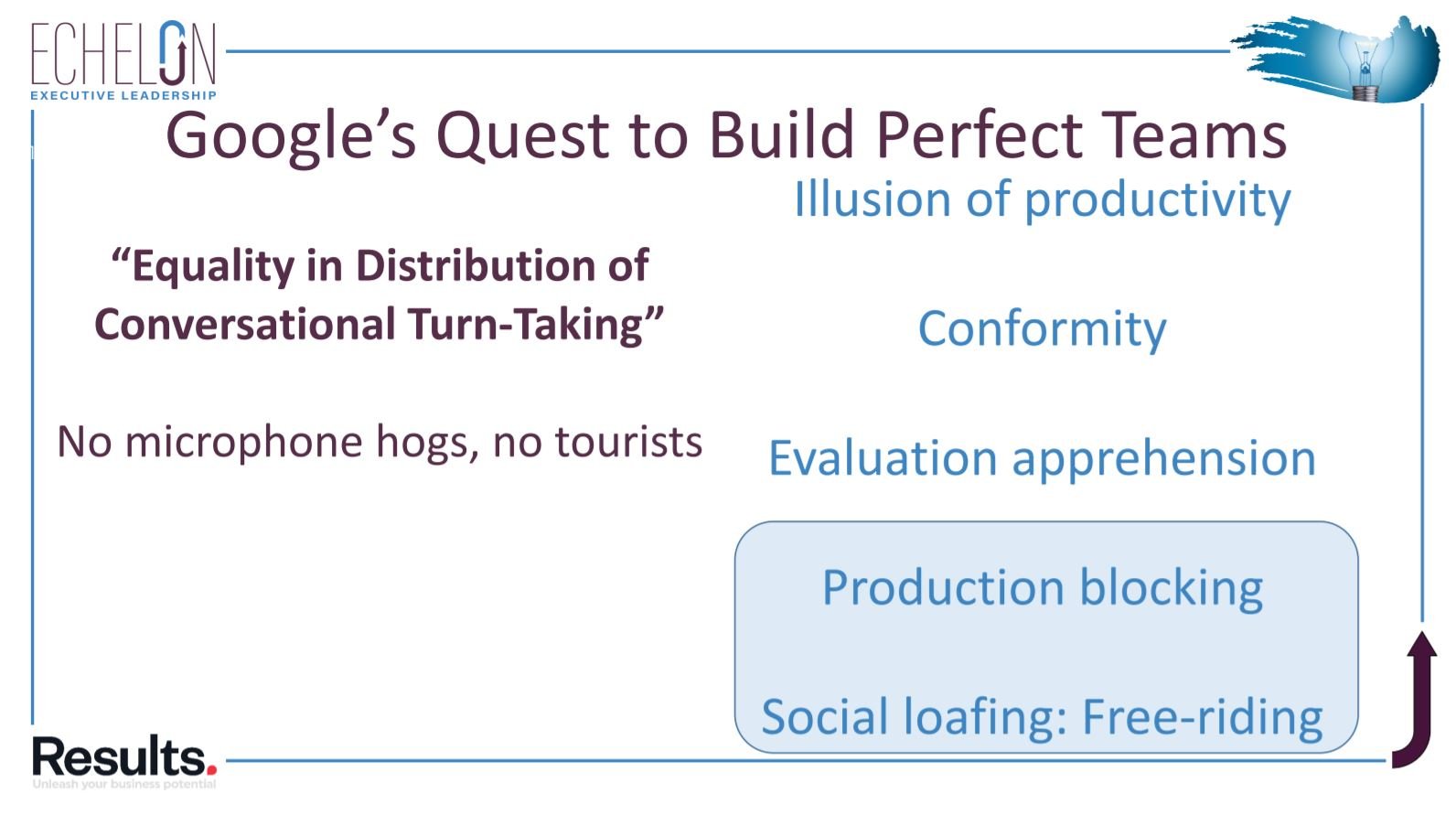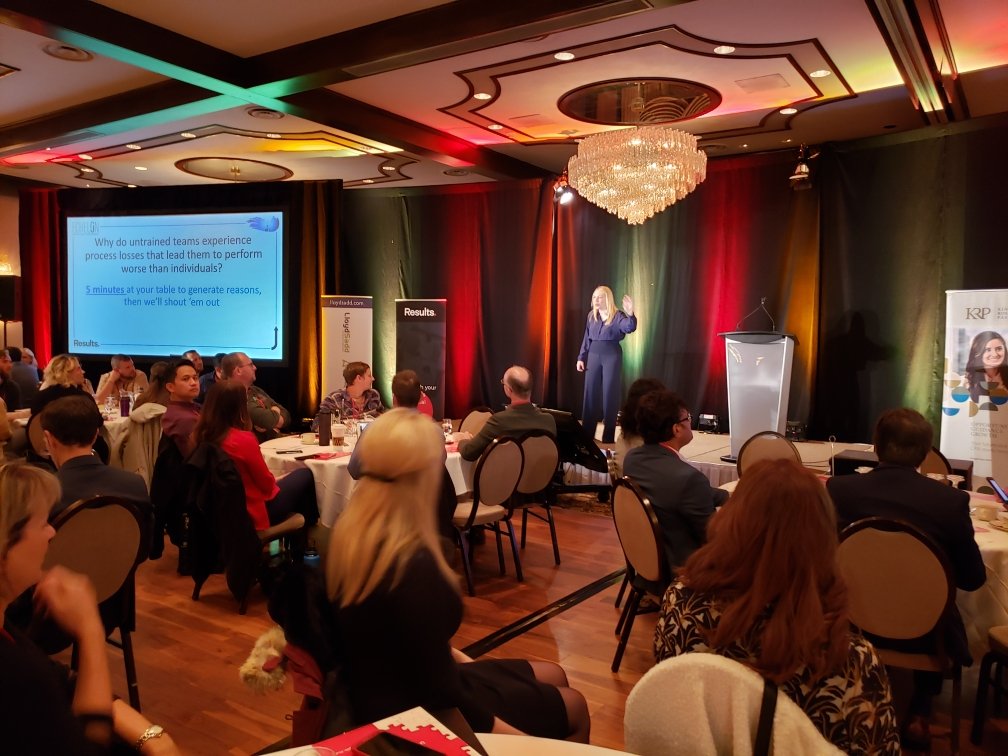An article by Tim O’Connor, Results
Teams aren’t always better
Earlier this month, we were pleased to bring Alison Fragale to Alberta once again to share her knowledge, research and experience with over 500 business leaders at two separate events. The information she presented, along with her practical and entertaining style, was highly valued by all attendees. If you missed it, here is a summary of some of Alison’s key points on diversity and team performance:
- It’s a commonly held belief that diverse teams are superior to those that are more homogeneous, however the research does not support this belief. Diversity is only potential and will go unrealized without proper processes: POTENTIAL (Diversity) + PROCESSES = PERFORMANCE. Alison showed several examples of how productivity actually dropped in teams without both elements.
- Without sound processes, teams can have productivity losses in a variety of ways:
- The Illusion of Productivity – “we have a lot of meetings”, is not the same as making decisions and generating outcomes.
- Conformity – behavior influenced because people want to fit in.
- Evaluation apprehension – like conformity, individuals being reluctant to share or be active in their teams for fear of being judged.
- Overcontribution – the tendency for some people to speak out or act more than their teammates.
- Social loafing – either consciously or unconsciously, individuals can sometimes loaf, ‘take a free ride’, when it comes to working in teams. This is strongly related to the Ringelmann Effect and is common when individual performance is indistinguishable from the team’s performance.
- The Common Information Effect – bringing together teams of people who are exposed to a lot of the same information can artificially inflate the importance and accuracy of that information.
- There are many different types of diversity – gender, age, racial, cultural, socio-economic, etc., – and all are valuable, but the most powerful diversity for improving performance is cognitive diversity. People who think differently from their team mates is what makes for the most productive teams.
- In order to get the most out of our teams, we need cognitive diversity AND an environment of psychological safety and participation equality.

Leaders: Help your people be more productive.
As a leader, you play a significant role in creating safety and participation. Alison presented the following ideas. Which of these occurs consistently in your organization?
- At the start of each meeting, begin with uplifting icebreakers or warmup questions (e.g. shared good news) to ensure initial participation by all.
- Separate ideas from their owners/advocates using formal techniques like asking people to debate both sides of an issue or decision.
- Encourage feedback, candor and extreme curiosity.
- Recognize and reward genuine questioning and listening habits, like using open questions, paraphrasing, pauses and undivided attention to speakers.
- Teams are formed and meetings scheduled based on ‘brain trust’, not authority, and ground rules are used to ensure people “leave their stripes at the door”.
- There are daily and/or weekly work-in-progress meetings where it’s OK to share bad news, mistakes, delays and risks without judgement by others.
- There is little finger pointing when things go wrong; people own it.
- Speaking order and leadership in teams and meetings is rotated.
If you said yes to most of these, you are likely enjoying high levels of performance in your organization already. If not, ask yourself which of these technique or norms you can introduce and encourage more deliberately. And, as always, if you need help please connect with one of our team members here at UnleashResults.com


